Digital Marketing
Digital Marketing
What is Digital Marketing?
Digital marketing includes all online approaches aimed at promoting products, services, or brands. It integrates multiple platforms such as social media, search engines, email, and websites to reach potential customers. Unlike traditional marketing, digital strategies are data-driven and targeted, ensuring that businesses connect with their ideal audience efficiently.
Importance in the Modern Business World
In today’s fast-paced, technology-driven environment, digital marketing is not just an option—it’s a necessity. Businesses of all sizes rely on digital marketing to stay competitive, reach their audiences, and thrive in an increasingly online world. Traditional marketing methods like print ads and billboards have limited reach and often fail to deliver measurable results. In contrast, digital marketing offers precision targeting, real-time analytics, and a direct line to potential customers.
One of the biggest advantages is accessibility. With billions of people online daily, businesses can connect with audiences worldwide without the geographic limitations of traditional methods. Digital platforms like social media and search engines provide unparalleled opportunities for businesses to engage with customers, foster relationships, and build brand loyalty.
Moreover, digital marketing is cost-effective, making it an ideal choice for startups and small businesses. Campaigns can be tailored to fit any budget while maximizing return on investment (ROI). Real-time performance tracking also ensures continuous improvement, allowing businesses to adjust strategies based on data-driven insights.
In the modern business world, consumer behavior is largely influenced by online interactions. Digital marketing ensures businesses not only capture attention but also stay relevant in a competitive landscape, making it a cornerstone of success in the 21st century.
The Core Components of Digital Marketing
Search Engine Optimization (SEO)
SEO is the process of optimizing websites to rank higher on search engine results pages (SERPs). It involves keyword research, on-page and off-page optimization, and technical enhancements. Ranking high on search engines ensures increased visibility and organic traffic.
Key Elements of SEO
Search Engine Optimization (SEO) is the backbone of digital marketing, ensuring that websites rank higher on search engine results pages (SERPs). Effective SEO consists of multiple interconnected elements that work together to enhance online visibility and drive organic traffic. Let’s dive into the three core pillars of SEO and the complementary role of Pay-Per-Click (PPC) advertising.
Keyword Research: Identifying Relevant Terms Your Audience Searches For
Keyword research is the foundation of SEO. It involves discovering the terms and phrases that your target audience types into search engines when looking for products, services, or information. Tools like Google Keyword Planner, SEMrush, and Ahrefs can help businesses identify high-traffic and low-competition keywords that align with their goals.
To perform effective keyword research:
- Understand Your Audience: Define buyer personas and identify the challenges your audience faces.
- Focus on Intent: Keywords should match the searcher’s intent—whether informational, navigational, or transactional.
- Analyze Competitors: Study your competitors to discover keywords they rank for.
Integrating these keywords naturally into your content boosts your chances of appearing in relevant searches. However, overusing them—known as keyword stuffing—can harm your rankings.
Content Optimization: Crafting Engaging, Informative, and Keyword-Rich Content
Once keywords are identified, the next step is content optimization. High-quality content is crucial for user engagement and search engine rankings. Google’s algorithms prioritize informative, original, and well-structured content that meets user needs.
Key principles of content optimization include:
- Strategic Placement of Keywords: Use primary keywords in titles, headings, meta descriptions, and throughout the content. However, maintain a natural flow.
- Engaging and Informative Material: Content should solve the reader’s problem or answer their query. Incorporate visuals such as images, infographics, and videos to boost engagement.
- Internal Linking: Link to relevant pages on your website to improve navigation and retain users longer.
- Readability: Keep language simple, break text into short paragraphs, and use bullet points or subheadings to make content easily digestible.
Optimized content is not just about pleasing search engines—it’s about providing real value to your audience. A satisfied reader is more likely to stay on your site, share your content, and convert into a loyal customer.
Technical SEO: Improving Website Speed, Mobile Usability, and Indexation
Technical SEO focuses on the backend elements of a website to ensure it is easily crawlable and indexable by search engines. Some key areas include:
- Website Speed: Slow-loading websites lead to high bounce rates. Utilize tools such as Google Page Speed Insights to improve loading times.
- Mobile Usability: With mobile-first indexing, a responsive website design is essential. Ensure your site is mobile-friendly and offers seamless navigation on smaller screens.
- Indexation: Submit an XML sitemap to search engines so they can efficiently crawl and index your pages. Resolve broken links and eliminate duplicate content to avoid penalties.
By improving technical aspects, businesses enhance user experience and create a strong foundation for long-term SEO success.
Pay-Per-Click Advertising (PPC)
While SEO focuses on organic rankings, Pay-Per-Click (PPC) advertising is a paid model that delivers immediate visibility. With PPC, businesses bid on specific keywords, ensuring their ads appear at the top of SERPs. Platforms like Google Ads and Bing Ads make PPC a valuable complement to SEO strategies.
Advantages of PPC
- Immediate Traffic Generation: Unlike SEO, which takes time to yield results, PPC delivers instant traffic to your website. This makes it ideal for product launches, time-sensitive campaigns, or boosting short-term visibility.
- High ROI When Targeted Correctly: PPC allows precise targeting based on location, demographics, device type, and even time of day. This ensures your ads are shown to the most relevant audience, maximizing returns.
- Full Control Over Ad Budgets and Durations: Businesses can set daily or overall budgets, adjust bids, and pause campaigns at any time. This flexibility makes PPC a scalable option for companies of all sizes.
Content Marketing
Content marketing revolves around creating and distributing valuable content to attract and engage a specific audience. Blog posts, infographics, videos, and eBooks are popular formats.
Benefits of Content Marketing
- Builds brand authority.
- Enhances SEO efforts.
- Educates and nurtures leads.
Social Media Marketing
Social media platforms like Facebook, Instagram, LinkedIn, and Twitter are crucial for building brand awareness and engaging directly with audiences. Strategic campaigns can foster meaningful relationships with customers.
Email Marketing
Email marketing continues to be one of the most powerful methods for nurturing leads. Personalized email campaigns can boost conversions, inform subscribers about new products, and enhance customer loyalty.
Benefits of Digital Marketing for Businesses
Digital marketing has become an indispensable part of modern business strategies. Its ability to deliver precise, measurable, and scalable results has revolutionized how companies connect with their audiences. Whether you’re a small business or a global corporation, digital marketing offers unparalleled advantages that outshine traditional methods. Here are the top benefits businesses can reap from digital marketing:
Cost-Effectiveness
One of the most notable benefits of digital marketing is its cost-effectiveness. Traditional marketing methods, such as television, radio, and print advertisements, often require significant budgets and offer limited targeting options. In contrast, digital marketing allows businesses to reach their target audiences at a fraction of the cost.
For small businesses with constrained budgets, digital marketing levels the playing field. Platforms like social media and email marketing enable startups to engage their audience without the need for substantial investments. For example:
- Social Media Advertising: Platforms like Facebook and Instagram offer highly customizable ad campaigns that can be tailored to fit any budget.
- Pay-Per-Click Advertising (PPC): PPC campaigns, such as Google Ads, ensure businesses only pay when users click on their ads, maximizing ROI.
Furthermore, digital marketing eliminates the hidden costs associated with printing, distribution, and other logistics involved in traditional advertising. With tools like free or affordable website builders, email platforms, and social media management tools, businesses can launch impactful campaigns at minimal expense.
Global Reach
Traditional marketing methods often restrict businesses to specific geographic locations, especially when using localized mediums such as newspapers or radio. Digital marketing, however, breaks down these barriers, offering access to a global audience with minimal additional effort.
With billions of people online daily, businesses can showcase their products or services to potential customers around the world. For instance:
- Search Engine Optimization (SEO): Enables businesses to rank on search engines in multiple regions, increasing visibility globally.
- E-commerce Platforms: Tools like Shopify or WooCommerce allow small businesses to sell their products internationally.
- Social Media Marketing: Platforms like LinkedIn, TikTok, and YouTube facilitate reaching diverse demographics worldwide.
Global reach is especially beneficial for e-commerce and service-based businesses, as they can cater to customers across continents without requiring a physical presence. This scalability makes digital marketing a game-changer for businesses aiming to expand beyond local markets.
Measurable Results
Unlike traditional methods, where determining the success of a campaign can be challenging, digital marketing provides businesses with detailed, real-time analytics. These tools offer insights into campaign performance, audience behavior, and overall ROI.
Some key metrics tracked in digital marketing include:
- Click-Through Rates (CTR): Indicates how many users clicked on your ad or link.
- Conversion Rates: Tracks how many users took the desired action, such as making a purchase or signing up for a newsletter.
- Bounce Rates: Shows how many users left your website without interacting with it.
Platforms like Google Analytics, Facebook Insights, and HubSpot give businesses a comprehensive view of how their campaigns are performing. With this data, companies can:
- Adjust their strategies to improve underperforming areas.
- Allocate resources to the most effective channels.
- Continuously refine their campaigns for optimal results.
Measurable results also ensure transparency and accountability, helping businesses make informed decisions and justify their marketing spend.
How to Build a Digital Marketing Strategy
Defining Your Target Audience
Understanding your audience’s demographics, behaviors, and needs is the first step. Tools like Google Analytics and customer surveys can help identify your ideal buyer persona.
Setting SMART Goals
Set Specific, Measurable, Achievable, Relevant, and Time-Bound goals. For instance, aim to increase website traffic by 20% in the next three months.
Selecting the Right Channels
Each channel serves different purposes. For example:
- SEO: Long-term organic visibility.
- Social Media: Brand awareness and engagement.
- PPC: Immediate traffic boosts.
Analyzing Competitors
Study your competitors’ strategies to identify gaps and opportunities. Tools like SEMrush or Ahrefs can provide insights into their digital efforts.
Key Trends in Digital Marketing for 2024
AI-Powered Marketing
Artificial intelligence is revolutionizing digital marketing through chatbots, predictive analytics, and AI-generated content.
Voice Search Optimization
With the rise of voice assistants, optimizing for voice search queries has become essential. Focus on conversational keywords and FAQs.
Personalization and Customer-Centric Content
Today’s customers expect brands to understand their preferences. Use data analytics to craft personalized campaigns.
Sustainability in Digital Campaigns
Consumers increasingly favor brands with eco-conscious initiatives. Highlight sustainability efforts in your campaigns.
Common Digital Marketing Mistakes to Avoid
- Ignoring mobile optimization.
- Overlooking the importance of analytics.
- Failing to update outdated content.
- Spamming audiences with irrelevant ads.
Tools and Platforms to Enhance Digital Marketing
- Google Analytics: For website traffic analysis.
- HubSpot: All-in-one marketing automation.
- Hootsuite: Social media management.
- Ahrefs: SEO and competitor research.
How to Measure the Success of Your Campaigns
Key Performance Indicators (KPIs)
- Traffic Metrics: Pageviews, unique visitors.
- Engagement Metrics: Bounce rates, session durations.
- Conversion Metrics: Lead generation, sales.
Analytics Tools
Platforms like Google Analytics, SEMrush, and Hotjar provide detailed insights into campaign performance.
The Role of a Digital Marketing Agency
In today’s fast-paced digital world, businesses face the challenge of staying competitive while managing numerous marketing strategies. Digital marketing agencies play a crucial role in helping businesses navigate the complexities of the online landscape. By offering specialized services and expertise, these agencies enable companies to focus on their core operations while achieving their marketing goals effectively. Let’s explore why hiring a digital marketing agency can be a game-changer and the key services they provide.
Why Hire an Agency?
Hiring a digital marketing agency brings a multitude of advantages, from expertise to resource optimization. Here’s why it makes sense for businesses to partner with professionals:
- Access to Expertise and Experience
Digital marketing agencies employ teams of experts with diverse skill sets. From SEO specialists and content creators to social media managers and data analysts, these professionals bring in-depth knowledge of the latest industry trends and tools. Businesses can leverage this expertise to create cutting-edge strategies that deliver results. - Cost and Time Efficiency
Managing an in-house marketing team can be costly and time-consuming, requiring resources for recruitment, training, and technology. Agencies eliminate these overheads while providing quick and efficient solutions. They also handle time-intensive tasks like campaign management, allowing businesses to focus on operations and growth. - Cohesive and Holistic Strategies
A digital marketing agency ensures that all aspects of a company’s marketing efforts work together seamlessly. From branding to customer acquisition, their integrated approach ensures consistency across channels, enhancing brand visibility and reputation. - Scalability and Flexibility
Agencies can scale their services to match a business’s growth. Whether launching a new product, entering a new market, or managing seasonal campaigns, agencies adjust strategies based on specific needs and goals. - Better Return on Investment (ROI)
With data-driven decision-making and performance tracking, agencies ensure marketing budgets are spent efficiently. They monitor campaigns in real time, optimizing them for maximum ROI.
Services Provided by Digital Marketing Agencies
Digital marketing agencies offer a range of services designed to address every aspect of online marketing. Here are the key offerings:
- Comprehensive SEO Services
Search Engine Optimization (SEO) is a cornerstone of any successful digital marketing strategy. Agencies optimize websites to rank higher on search engines, driving organic traffic and enhancing visibility. Services include:- Keyword Research and On-Page Optimization
- Technical SEO Improvements
- Backlink Building and Off-Page Strategies
- Creative Content Campaigns
High-quality content is essential for engaging audiences and establishing authority. Agencies craft blog posts, videos, infographics, and other content types tailored to the target audience. They ensure the content aligns with SEO strategies and delivers value to readers. - Social Media Management
Social media platforms are vital for brand awareness and customer engagement. Agencies handle everything from account setup and content creation to paid social campaigns and community management. They track performance metrics to refine strategies over time. - Paid Advertising and Analytics
Paid ads, such as Pay-Per-Click (PPC) campaigns, are ideal for generating immediate results. Agencies manage ad budgets, create compelling ad copy, and optimize campaigns for conversions. Using tools like Google Ads and Facebook Ads Manager, they target specific audiences and maximize reach.Additionally, agencies provide robust analytics and reporting services, offering insights into campaign performance. This data-driven approach ensures continuous improvement and helps businesses make informed decisions.
Conclusion
Digital marketing is the driving force behind modern business success. By embracing its components, businesses can connect with global audiences, drive measurable results, and stay ahead in a competitive market.
FAQs
- What is digital marketing? Digital marketing involves using online channels to promote businesses, products, and services effectively.
- How much does digital marketing cost? Costs vary based on strategies, platforms, and goals but can be tailored to any budget.
- What is the most effective digital marketing strategy? It varies based on your objectives, target audience, and industry. SEO, content marketing, and PPC are generally impactful.
- Do small businesses benefit from digital marketing? Absolutely! Digital marketing levels the playing field, providing small businesses with cost-effective growth opportunities.
- What are the key factors to consider when selecting the right digital marketing agency? Look for agencies with a proven track record, transparent pricing, and services aligned with your goals.








